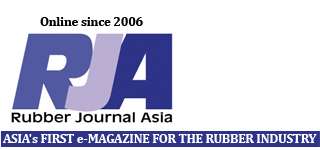Global demand for latex condoms and gloves is helping Malaysia rejuvenate its rubber industry that is growing competition from other countries such as Thailand and Vietnam, reported Bloomberg today.
The financial newswire said that exports of contraceptives are helping Malaysia revive an industry it once dominated even as rival rubber producers Thailand, Indonesia, Vietnam and India are gaining ground.
“Demand for condoms is continuously growing,” Goh Miah Kiat, executive director of the world’s largest condom manufacturer Karex, told Bloomberg.
Karex, which is planning an initial public offering next year, has plans to double capacity over the next few years to six billion condoms a year.
The Malaysian Rubber Export Promotion Council said in January that Malaysia has captured at least one-third of the world’s production of condoms. According to the Bloomberg report, the country is forecast to export 12 million kilograms of condoms valued at RM320 million this year, compared with 10.9 million kilograms worth RM277 million in 2011.
Bloomberg noted that Malaysia is looking for ways to increase the value-added portion of its rubber industry in line with the Najib administration’s Economic Transformation Programme that aims to lift the country to high income status.
Production of natural rubber in Malaysia is projected to fall, however, due to competition for resources from palm oil, labour shortages and low yields even as production in Vietnam is expected to jump 18 per cent to 955,000 tons and India’s rubber output also expected to rise 3.1 per cent to 920,000 tonnes.
The Association of Natural Rubber Producing Countries said in November that Malaysia’s rubber output may fall 4.6 per cent to 950,000 metric tons this year.
Apart from condoms, Malaysia has also emerged as the world’s largest producer of rubber gloves and currently has about 60 per cent of world market share.
Bloomberg noted that to help supply manufacturers with sufficient raw material to grow, Malaysian authorities are handing out grants to smallholders to replant 40,000 hectares annually and plant 18,000 hectares of new rubber areas over the next five years.
Lekshmi Nair, a Singapore-based senior economist with the International Rubber Study Group, said in the report, however, that in terms of plantations, there is more investment going into the Mekong region in Cambodia and Laos and more downstream investments are going to Vietnam and Indonesia.
“Malaysia has to compete with these countries. That’s a great challenge,” said Lekshmi.
Karex’s Goh, whose company also supplies condoms to the United Nations, however, appeared optimistic for the country’s future in the contraceptive sector at least.
“When we got into condoms, it was pretty much a dirty word,” he said “Today, things have changed. Asia is going to create a lot of demand because our population is very young.”

